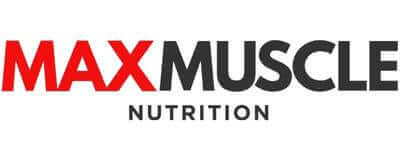Many point to the fact that myths and facts have been blended together in the eyes of the general public, multiple creatine types exist, various dosing recommendations have been suggested, etc. Irrelevant of the cause for this confusion, it’s high time to sort through all of the moving pieces of information and truly assign some clarity to a unique, potent supplement. This creatine guide will help answer your questions and provide you with a genuine understanding of what creatine is, how it works, how to use it, and whom exactly should be using it.
 What Is It?
What Is It?
Creatine is a metabolite that is produced naturally by the human body. It is found mainly in the red muscle tissue, but it is also present in the heart and brain. Normally, creatine is acquired through regular dietary intake of products such as meat and fish, which are high in protein. The team of scientists at Max Muscle Nutrition has long-been on the cutting edge of creatine research. Understanding and execution of sound science behind creatine led the team to believe it best to offer multiple creatine and creatine-containing supplements, such as Max Creatine, a crystalline creatine monohydrate formula.
Creatine monohydrate is the most common form in which creatine is found and is among the most scientifically-validated nutrients available. In its quest to bring you the absolute best in nutrition, fitness, and health, Max Muscle has provided Max Creatine as a potent, cost-effective solution to support your training needs.
How Does It Work?
Creatine is produced naturally in the body and is used in muscle to replenish ATP (adenosine triphosphate-energy) stores. By supplementing with Max Creatine Monohydrate you can super saturate your muscles with creatine, which in turn increases the water content of your muscles. By increasing the water content you also increase the ability of the muscle to perform protein synthesis. After exercise, an increase in protein synthesis can often lead to better recovery and faster muscle gain. In the body, creatine is changed into a molecule called phosphocreatine, which serves as a storage reservoir for regenerating ATP. ATP is the chemical source of energy for muscle contraction and quick energy.
What Is It Useful For?
Creatine has a number of intended benefits, thus expanding the list of potential beneficiaries beyond what was originally imagined. Everyone from athletes to regular gym-goers can stand to benefit from creatine supplementation.
First and foremost, let’s start with what many know already: strength building. According to a multitude of studies, including research performed by the San Francisco-based Genentech, creatine results in the production of phosphocreatine, which heightens one’s ability to perform short-duration, intense exercise. Furthermore, the International Journal of Sports Medicine has observed that various quick-twitch muscle fiber-demanding sports, such as sprinting and high jump, are improved in conjunction with creatine supplementation. Creatine also has repeatedly demonstrated research-backed improvements in muscle gain. While studies showing isolated creatine supplementation affecting muscle growth are far from bulletproof, it would seem as if it acts as a catalyst, exacerbating muscle growth in those who are on a strength-training regimen.
While far from being a settled science, some studies do show benefits in mental acuity in association with creatine supplementation. Perhaps some of the most surprising benefits to those unaware, is that creatine has been shown to have a positive effect on heart health. According to the Mayo Clinic, in those with chronic heart disease, it increases heart muscle strength and assists with endurance. Many with heart failure have low natural creatine levels; proper creatine supplementation can correct this imbalance. This should intuitively make sense, as the heart itself is a muscle.
Is Creatine Safe?
This is the question that serves as a sort of controversy with creatine supplementation. In spite of the massive amounts of research available on the matter, questions regarding safety are still commonplace. The answer is mostly black and white. Creatine supplementation, in the proper doses, is safe.
That being said, there are certain situations and dosing protocols that one should avoid. Consumption of creatine beyond the recommended doses has been shown to cause excess bloating, hydration issues, and headaches (hydration-related). Creatine is not recommended for those with kidney issues or on certain medications, according to the Mayo Clinic. Otherwise, creatine supplementation is safe and effective. Always ask your family physician before taking any new supplement.
How Is It Taken?
Creatine is generally consumed in daily 5g increments. While many still recommend a ‘loading’ phase for creatine, which involves taking as high as four to six times the standard daily dose, this research is largely outdated science. Though it may potentially serve as a catalyst for creatine-induced results, it is not necessary, and also will save you money in the long run.
Additionally, this could cause unwanted bloating in certain people. While there are studies showing equal benefit in pre and post-exercise creatine supplementation, just be sure to ideally time your creatine intake with some carbohydrates for added absorption. Ideally this is done close to your training session, when your body is most naturally insulin-sensitive.

Can Women Use It?
While many supplements can be considered something of a gender-dependent variety, creatine is not one of them. Women can benefit from creatine, just as men can. Creatine works in the body for women the same way it does for men. While dosing recommendations are not as prevalent, women looking to benefit from creatine should utilize somewhere between 3-5g, daily.

